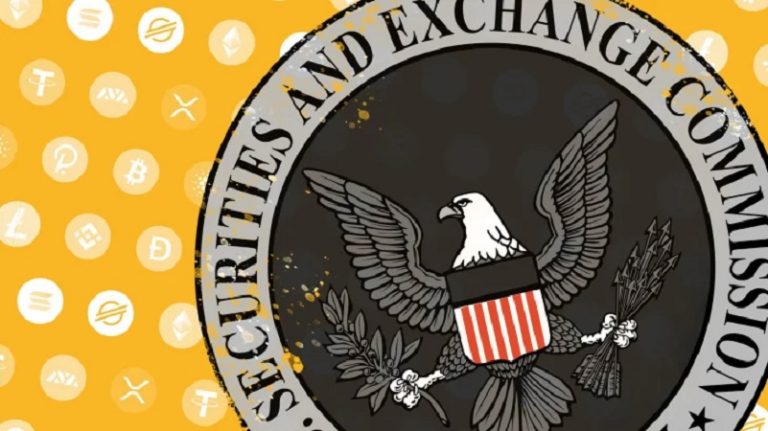
A recent incident of market manipulation has shaken the crypto community and caused significant losses for many traders. On January 9th, 2024, a tweet from a fake account claiming to be the U.S. Securities and Exchange Commission (SEC) announced that the agency had approved the first bitcoin exchange-traded fund (ETF). The tweet, which used the official SEC logo and handle, looked convincing enough to fool many investors who were eagerly awaiting such a decision.
The fake tweet triggered a sudden surge in the price of bitcoin, which jumped from around $50,000 to over $55,000 in a matter of minutes. However, the rally was short-lived, as the SEC quickly issued a statement denying the tweet and confirming that no bitcoin ETF had been approved. The price of bitcoin then plummeted back to its previous levels, leaving many traders who had bought or sold on the fake news in a precarious position.
According to data from Bybt, a crypto derivatives analytics platform, the fake tweet caused around $90 million worth of liquidations across various exchanges. Liquidations occur when traders who use leverage (borrowed funds) to amplify their positions are forced to close them at a loss when the market moves against them. The majority of the liquidations were long positions (bets that the price of bitcoin would go up), which accounted for about $75 million of the total.
Register for Tekedia Mini-MBA edition 19 (Feb 9 – May 2, 2026): big discounts for early bird.
Tekedia AI in Business Masterclass opens registrations.
Join Tekedia Capital Syndicate and co-invest in great global startups.
Register for Tekedia AI Lab: From Technical Design to Deployment (next edition begins Jan 24 2026).
The fake tweet was a clear example of how social media can be used to manipulate the crypto market, which is still largely unregulated and vulnerable to misinformation. The incident also highlighted the need for investors to exercise caution and due diligence when relying on online sources for investment decisions. The SEC has repeatedly warned about the risks of investing in crypto assets and has urged investors to verify any information they receive from third-party sources.
The crypto community has reacted with outrage and disbelief to the fake tweet, which some have called a “dirty trick” and a “scam”. Many have also expressed frustration with the SEC for delaying the approval of a bitcoin ETF, which they believe would bring more legitimacy and stability to the crypto market. The SEC has been reviewing several applications for a bitcoin ETF for years but has not yet given a green light to any of them. The agency has cited concerns about market manipulation, fraud, custody, and investor protection as reasons for its hesitation.
The fake tweet incident is not the first time that the crypto market has been affected by false or misleading information. In 2017, a hoax report that China had banned bitcoin caused a sharp drop in the price of the cryptocurrency. In 2018, a fake email claiming that Walmart had partnered with Litecoin caused a brief spike in the price of the altcoin. In 2020, a fake press release that Tesla had bought $1.5 billion worth of bitcoin caused a massive rally in the price of the cryptocurrency.
These incidents show that the crypto market is still highly volatile and susceptible to external influences. Investors should be aware of these risks and do their own research before making any trading decisions. They should also use reputable sources and platforms that have proper security and verification measures in place. As the crypto market matures and becomes more regulated, it is hoped that such incidents of market manipulation will become less frequent and less impactful.


